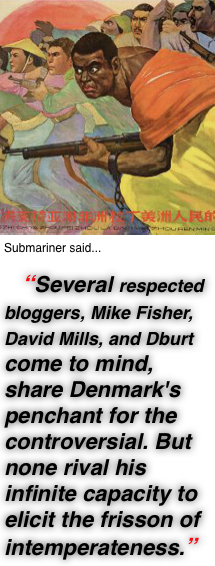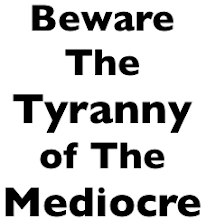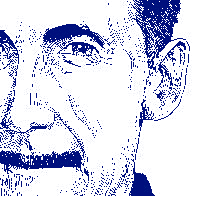 A Bedouin man, facing Mecca, says his midday praryers along the Red Sea coast of the Sinai Peninsula, Egypt.
A Bedouin man, facing Mecca, says his midday praryers along the Red Sea coast of the Sinai Peninsula, Egypt.I'm no Muslim. However, I find it hard to think of people who pray to God five times a day as 'fanatical terrorists' and people who worship money, lie about WMD's and invade other nations as 'spreaders of democracy'.
















































































































4 comments:
Don't get it twisted. I find it easy to believe considering the history of the man they idolize, Muhammad. He was a military warrior who was responsible for many deaths. What do you expect? Didn't he marry a six year old when he was 50+?
Paul,
Attempting to appreciate a beautiful and deeply spiritual practice like Islam, by examining it though the lens of contemporary celebrity gossip is intellectual lazy.
I admire Muslims for their discipline and their ability to fully submit to their spiritual beliefs. I didn't get my views of Muhammad from celebrity gossip. I got it from reading history books. Is it not true?
Discontent in Civilization:
The basic idea in Discontent in Civilization is the understanding of culture as a tool to neutralize aggression. This is achieved by turning aggression back against the ego, and the instrument for this inversion is the superego. Freud writes:
"Aggressiveness is introjected, internalized, it is, in point of fact, sent back to where it came from, that is, it is directed against his own ego. There it is taken over by a portion of the ego, which sets itself over against the rest of the ego as super-ego, and which now, in the form of conscience, is ready to put into action against the ego the same harsh aggressiveness that the ego would have liked to satisfy upon other, extraneous individuals. The tension between the harsh super-ego and the ego that is subjected to it, is called by us the sense of guilt; it expresses itself as a need for punishment. Civilization therefore obtains mastery over the individuals dangerous desire for aggression by weakening and disarming it and by setting up an agency within him to watch over it, like a garrison in a conquered city."
(Freud, SE IX, p. 250.)
By means of identification he takes the unattackable authority (...of the father...) into himself. The authority now turns into his super-ego and enters into possession of all the aggressiveness which a child would have liked to exercise against it. The child’s ego has to content itself with the unhappy role of the authority – the father – who has been thus degraded. Here, as so often, the real situation is reversed: ‘If I were the father and you were the child, I should treat you badly.’ The relationship between the super-ego and the ego is a return, distorted by a wish, of the real relationships between the ego, as yet undivided, and an external object. That is typical, too. But the essential difference is that the original severity of the super-ego does not – or does not so much – represent the severity which one has experienced from him (the father), or which one attributes to him; it represents rather one’s own aggressiveness towards him. If this is correct, we may assert truly that in the beginning conscience arises through the suppression of an aggressive impulse, and that it is subsequently reinforced by fresh suppressions of the same kind.
Civilization and its Discontent, p. 76. Freud, SE IX, p. 255 (German)
“It regards reality as the sole enemy and as the source of all suffering, with which it is impossible to live, so that one must break off all relations with it if one is to be in any way happy. The hermit turns his back on the world and will have no truck with it. But one can do more than that; one can try to re-create the world, to build up in its stead another world in which its most unbearable features are eliminated and replaced by others that are in conformity with one‘s own wishes. But whoever, in desperate defiance, sets out upon this path to happiness will as a rule attain nothing. Reality is too strong for him. He becomes a madman, who for the most part finds no one to help him in carrying through his delusion. It is asserted, however, that each one of us behaves in some respect like a paranoiac, corrects some aspect of the world which is unbearable to him by the construction of a wish and introduces this delusion into reality. A special importance attaches to the case in which this attempt to procure a certainty of happiness and a protection against suffering through a delusional remolding of reality is made by a considerable number of people in common. The religions of mankind must be classed among the mass-delusions of this kind. No one, needless to say, who shares a delusion ever recognizes it as such”.
(Standard Edition, XXI, p. 81)
Post a Comment